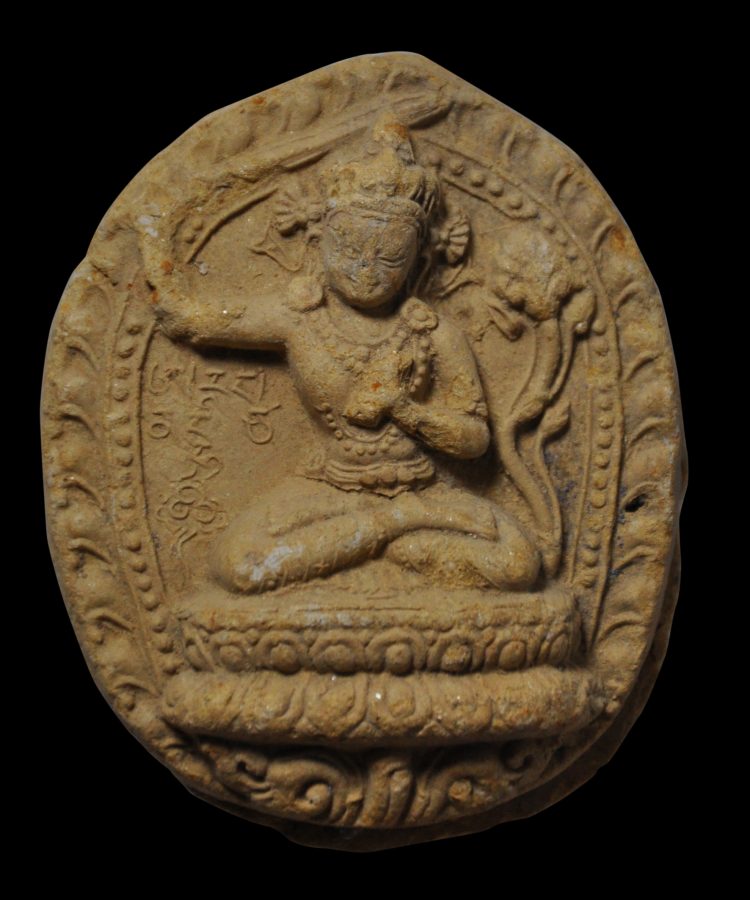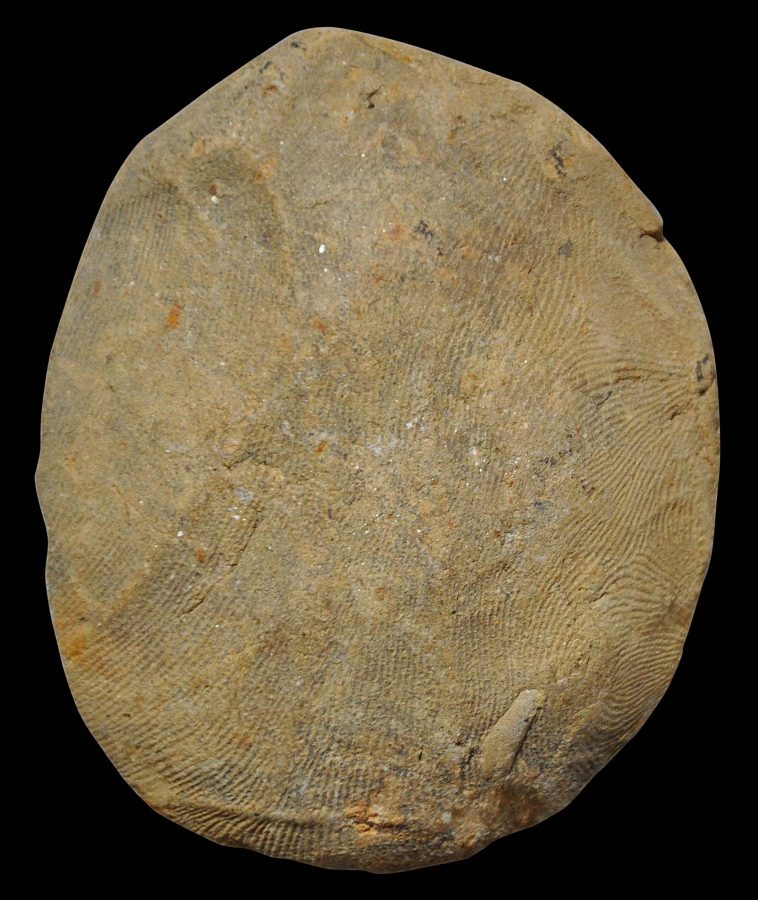Enquiry about object: 4443
Fine Clay Votive Plaque (Tsa-Tsa) of Manjushri with Lantsa Script
Tibet circa 15th-17th century
height: 6.4cm, width: 5.2cm, thickness: 1.8cm
Provenance
Collection of Stephen Masty (1954-2015)
This very fine devotional votive plaque or tsa-tsa was made by pressing clay into a metal reverse-mould after which it was fired. It shows the deity Manjushri, the embodiment of infinite wisdom. His double-edged sword cuts through obscuring layers of misconception and ignorance. He holds n his left hand a sutra text. A lotus stem and flower rises from his left side.
Manjushri’s mantra ‘ Om ah ra pa tsa nia dhi’ appears in Tibetan lantsa script on his right side.
Such tablets were acquired by Buddhist devotees and pilgrims as acts of merit, often at religious sites, as mementos and talismanic or protective keepsakes. The plaques often were made in one location and carried by pilgrims to be left at a site in another location, perhaps in a cave or at an important shrine. According to Proser (2010, p. 167), the practice of spreading tsa-tsa offerings throughout the landscape can be likened to sowing seeds of potential spiritual merit, somewhat akin to laying out ‘fields of Buddhas’ throughout the world.
The example here is in an excellent, stable condition.
Collection of Stephen Masty (1954-2015); see here for more information on Masty.
References
Proser, A., (ed.), Pilgrimage and Buddhist Art, Asia Society Museum/Yale University Press, 2010.



